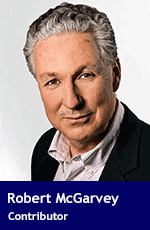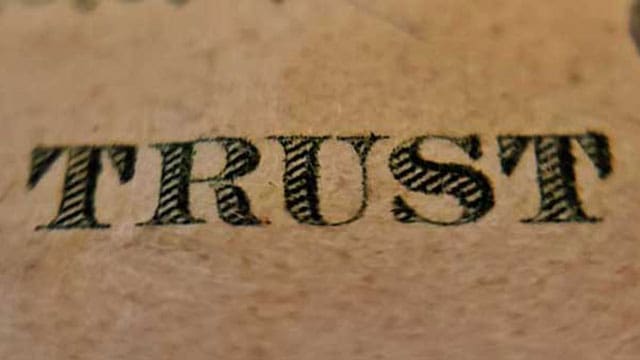 In a world that’s moving as rapidly and unpredictably as our world is today, what’s the ‘North Star’ for leaders, the one constant – in a universe of insecurity – that can ensure success? Trust.
In a world that’s moving as rapidly and unpredictably as our world is today, what’s the ‘North Star’ for leaders, the one constant – in a universe of insecurity – that can ensure success? Trust.
This was the compelling message put forward by Steven M.R. Covey, author of The Speed of Trust (and son of Steven R. Covey, the author of 7 Habits of Highly Effective People) at the DEXIO conference held this past weekend in Edmonton.
Steven hit the ‘nail on the head’ with his convincing arguments that trust is more than simply a social virtue; it has practical bottom line impact. Trust is arguably the most underrated and most vital quality of effective organizations.
How does trust impact results? Simple: with high levels of trust, business (and political) objectives are achieved faster and at lower cost.
In my view, this is a case of the son outshining the father; I believe Steven has put his finger on the pulse of a concept that – despite its profound importance – remains largely invisible.
The good news is, it’s a relatively simple process to build trust inside an organization, a First Nation community or a country for that matter, and doing so can have dramatic impact on morale, the levels of personal satisfaction and performance.
It’s obvious when you think about it. And here in Western Canada we’ve got our own (albeit negative) experiences to draw upon as examples.
Consider the oil and gas business or the mining industry. Over the past few decades the ‘speed’ of their businesses has slowed to a crawl. Today they’re faced with a growing volume of regulatory hurdles, environmental impact assessments, sustainability reporting and a background of growing public resistance to development.
What explains this expanding web of new obligations? Simply, the level of public trust in these industries and their management is declining.
Calamities like the BP blowout in the Gulf of Mexico or the Mt. Polley tailings pond disaster have tainted the entire sector. In the case of Mt. Polley, four square kilometres of mine tailings have flooded into Hazeldine creek and the Caribou Creek watershed. No problem or lasting impact, according to mine operator Imperial Metals and various provincial authorities.
While this may (arguably) be true technically, public trust in the industry is heading south, fast.
According to the Edelman Trust Index, public trust in the mining and energy industries has fallen again this year, putting them in company with institutions as distrusted as governments and the big investment banks.
It’s little wonder that external surveillance and regulatory hurdles are being strengthened, slowing the speed and increasing costs of doing business in these important industries.
But trust is more than a commercial virtue; it’s also the foundation of a nation’s most important asset – civil society. The glue that holds a civilization together is its social capital: the willingness and ability of individuals to work together to common purpose. And, obviously, this form of capital is impossible to sustain in the absence of trust.
No meaningful social order or definition of progress can be achieved without trust. Governments need to be trusted in order to govern, businesses need to be trusted in order to provide vital goods and services, and individuals need to trust one another in order to simply walk the streets safely.
Consider how important trust is to modern software development. Today, teams of individual programmers from all corners of the world collaborate to generate software. It’s common for these individuals to never actually meet in person. High levels of trust allow them to cooperate together freely and confidently while they build the software that runs the world.
The industrial revolution two centuries ago proved many things, but most importantly it proved that if you change the value creation engine in an economy you also change the rest of society as well. And as we transition out of our familiar Industrial Society to a Creative Society, much of the predictability and order we’ve become used to will vanish.
What will preserve us in this great transition is – you guessed it – trust. Learning how to build and sustain high levels of trust in our family life, in our organizations and in our nations is a vital survival strategy for the future.
Robert McGarvey is an economic historian and former managing director of Merlin Consulting, a London, U.K.-based consulting firm. Robert’s most recent book is Futuromics: A Guide to Thriving in Capitalism’s Third Wave.
Robert is a Troy Media contributor. Why aren’t you?
The views, opinions and positions expressed by columnists and contributors are the author’s alone. They do not inherently or expressly reflect the views, opinions and/or positions of our publication.



Letter to the Editor:
It was Hazeltine creek not Caribou creek. And the
released water tested to meet drinking water guidelines, and the tailing were
found to be just crushed granite, with more more heavy metals than any other
granite in the area.
Arsenic values were barely detectable.
Dave